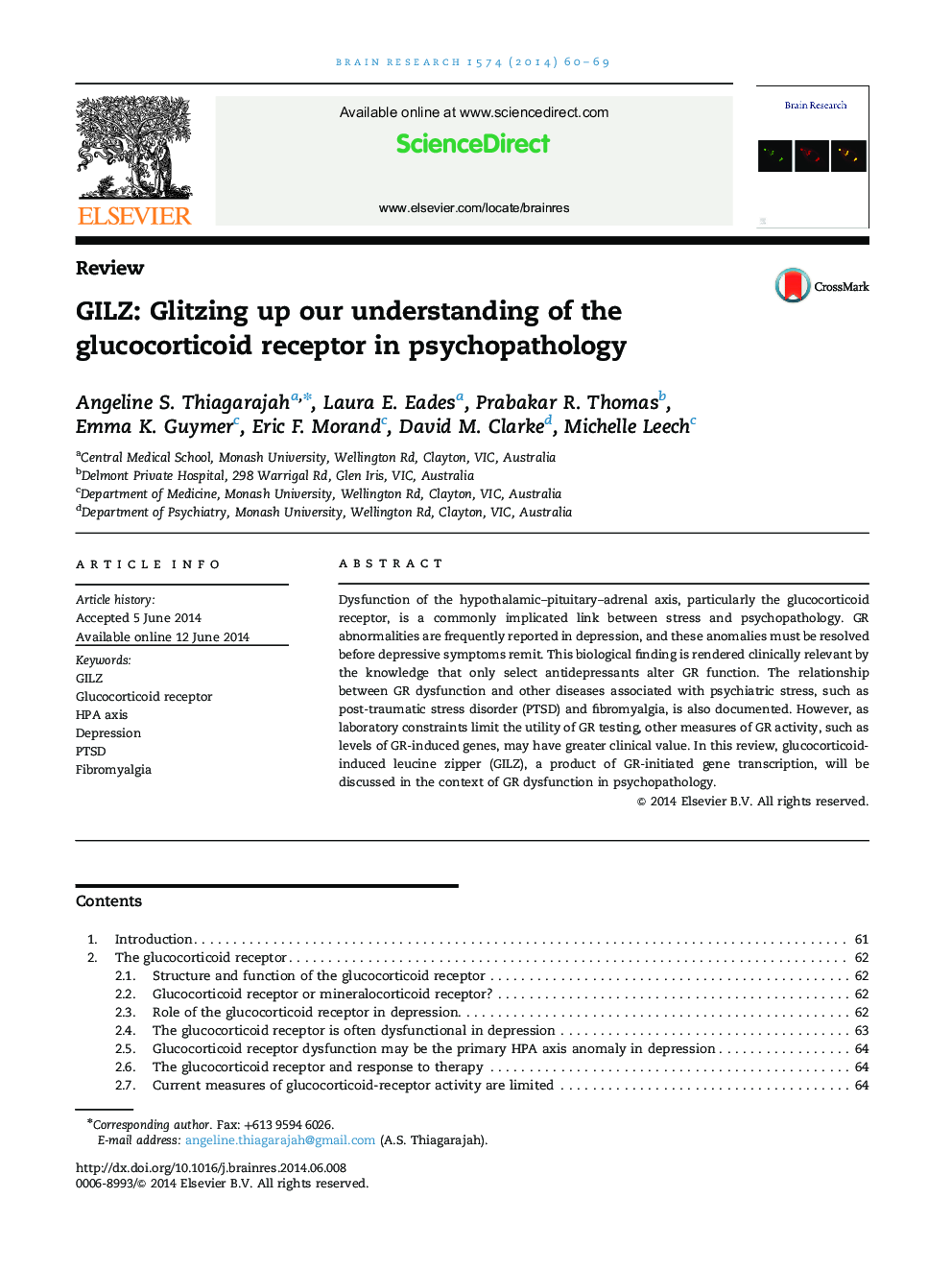| Article ID | Journal | Published Year | Pages | File Type |
|---|---|---|---|---|
| 4324200 | Brain Research | 2014 | 10 Pages |
Dysfunction of the hypothalamic–pituitary–adrenal axis, particularly the glucocorticoid receptor, is a commonly implicated link between stress and psychopathology. GR abnormalities are frequently reported in depression, and these anomalies must be resolved before depressive symptoms remit. This biological finding is rendered clinically relevant by the knowledge that only select antidepressants alter GR function. The relationship between GR dysfunction and other diseases associated with psychiatric stress, such as post-traumatic stress disorder (PTSD) and fibromyalgia, is also documented. However, as laboratory constraints limit the utility of GR testing, other measures of GR activity, such as levels of GR-induced genes, may have greater clinical value. In this review, glucocorticoid-induced leucine zipper (GILZ), a product of GR-initiated gene transcription, will be discussed in the context of GR dysfunction in psychopathology.
